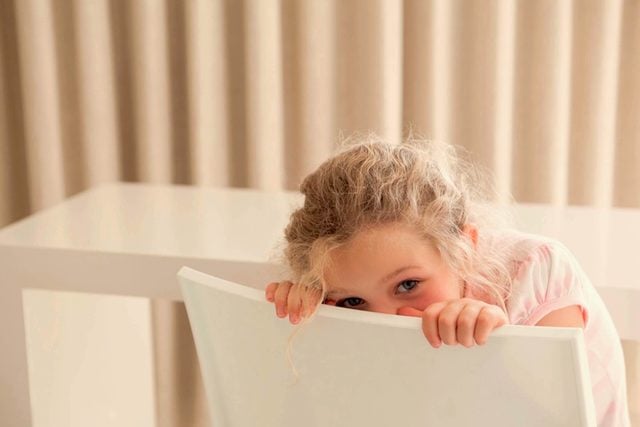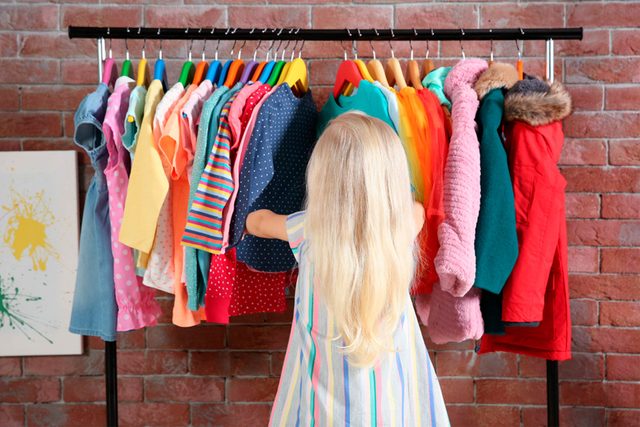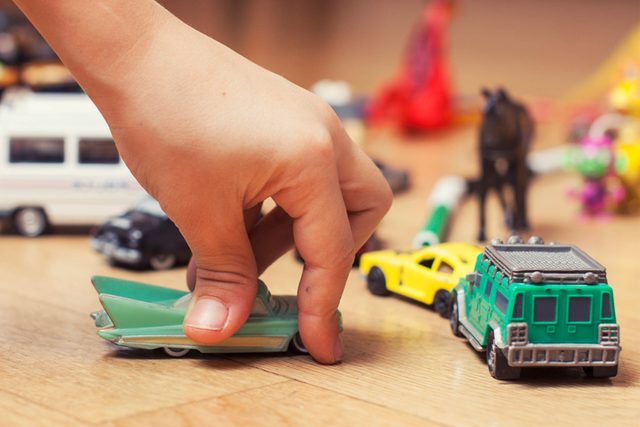
Keep it playful
Research shows that playful teasing between parents and their children can be a way to strengthen relationships, bring up difficult topics, and just have fun—but parents need to recognize when teasing crosses the line and becomes hurtful. “Teasing done well should be enjoyed by both sides, it should be playful,” says Carol Bishop Mills, PhD, graduate coordinator and associate professor at the College of Communication and Information Sciences at the University of Alabama. “But you need to pay attention to your child, if he looks away, tears up, does not engage in banter, you have to recognize that they are not enjoying it.” There are also rules about what is okay and not okay to tease your child about. Appearance and weight are both taboo, but teasing kids about safe topics, like a like a messy room, or things that can be easily changed, provide teachable moments, says Bishop Mills. Teasing should also be a two-way street. “You have to be willing to let your child tease you about things.” If they go too far, you have to make sure not to snap at them, and instead make it a teachable moment, she explains. “Tell them that you know you were meant to tease, but you hurt my feelings—this helps kids learn boundaries.”

Sports performance
Fun is the number one reason kids like to play sports, and “it’s no longer fun,” is the number one reason kids quit sports, according to a George Washington University study. When parents get too involved in the coaching process, kids can become afraid to make mistakes and feel disrespected. While teasing can be a playful part of sports, it should not be done by the parent, says Bishop Mills. With performance, coaches and peers can tease the way parents can’t, she explains. “In sports, the teasing is done in the concept of being part of a team–parents are not part of the team.” Teasing a child about sports performance can not only cause a child to quit the sport, it can damage their self-esteem, says Gabriel Kaplan, MD, Medical Director of Behavioral Health Services at Bergen Regional Medical Center in Paramus, New Jersey. “The child already knows they are not good at their sport and they are already upset about disappointing their parents,” says Kaplan. “When they are teased, they feel attacked, insulted.” Kaplan says that parents have to recognize if the sport is a good match for their child. “If the child has talent, talk to the coach and find out what they can do to improve their technique.”

Academics
A disappointing grade can trigger emotions in both the parent and the child, but teasing should only be used for motivation, as a gentle reminder to study or do homework, and should not be focused on the ability because that could make the situation worse, says Bishop Mills. “Parents have to remember that teasing always has to have an element of humor—if it’s not funny, it’s not a tease.” Being upset because you wanted your child to get an A, but they got a C, is normal, says Kaplan, but parents have to learn how to make the upset productive. “It’s not wrong to say to your child, ‘I’m disappointed that you got a C,’ but then you must work with them to figure it out.” Discovering that your child isn’t “A” material is also a possibility. “He might be B material, but if there are continuous C’s, you need to examine if there is a learning disability or maybe they are depressed or being bullied.” Find out how to tell if your child’s math struggles are more serious than you thought.

Shyness
Introversion and extroversion, are traits that are wired into the child, explains Bishop Mills. “Teasing a kid about being shy will only make things worse.” Shyness has to do with self-esteem, says Kaplan. It is healthy for parents to push their shy children to be with friends. He suggests setting up play dates at the child’s house and making the home a center of play and enjoyment. “If you try all these things and the child is still completely by themselves, then there may be something else going on. Try talking to the school guidance counselor to see if an event took place that marked the behavior.”

Being smart
Teasing someone about being super smart can be positive reinforcement, especially when the kid feels good about being nerdy or being an over-achiever, explains Bishop Mills. “But it is never okay to compare a child to another child.” Kids view comparisons to their peers or siblings in a negative way, she explains. “Comparing them to a super star however, like Albert Einstein or David Ortiz, is different.” We consider our children to be extensions of ourselves, says Kaplan, but they are their own people, and we have to understand that they are different people. “If the father was the captain of the football team and the kid is a book worm, there will be some feelings,” he says. “It’s important to make sure the child is happy and well grounded. If they close the door and spend ten hours reading and they don’t talk to other kids, that’s a problem.” Pat your kid on the back if you spot these 11 traits that signal you’re raising a child genius.

Weight
Unfortunately obesity is a huge medical problem in this country, says Kaplan. That problem is made even worse by the social stigmas attached to being overweight. Studies show that being labeled “too fat” in childhood is associated with higher odds of having an obese BMI nearly a decade later and the teasing they receive when they are younger can cause lasting harm. Putting down your child about being overweight or taking them shopping for clothes and asking them “what happened?” when they have to get a bigger size, will not help the situation, says Kaplan. “They already know they are overweight, and they feel awful about it. If you put them down, there is nothing better than a rush of sugar to make you feel good—they will go and eat more.”

Fear
From monsters under the bed to darkness and loud noises, fears that may seem silly to an adult may be very real to a child. Laughing or teasing won’t help them overcome their fears, in fact, it could make them worse. Like introversion and extroversion, risk taking is also a trait that is wired into the child, explains Bishop Mills. “Some kids are born risk takers, and some are not,” she says. But teasing a child who is frightened about something is not a way for them to expand their horizon—you need to make them feel secure. But feel free to giggle at these 18 hilarious true stories from real parents.

Choice of clothing
Most children master the basics of getting dressed by age three, and the task of dressing helps them feel more competent and confident. “When you tease, you bring up the possibility that they can be judged,” says Bishop Mills, “and that can affect their self-esteem.” The way we dress represents how we feel about ourselves and how we want to convey ourselves to others, says Kaplan. At first kids want to look like everybody else, they want to wear the same clothes and to feel accepted but in the adolescent years, they want to find their own identity, he explains. While there are times that kids can become too individual, such as dressing provocatively, Kaplan says that as a parent, you have to trust your gut and know when things are not right. “When a child always looks sullen and is always dressed in black, that means they are feeling dark and sullen.” This type of behavior shows distress and may cause others to reject your child, he explains. In such situations, dress becomes important because it can have social consequences. Watch for these other 10 subtle signs your child is being bullied.

Material things
When you ask kids if they know if they are poor or rich, even the poorest kids will say they are rich, because kids don’t always understand that distinction, says Kaplan. “Adults tend to put a lot more into believing that their kids will be affected if they don’t have latest PlayStation or iPhone.” Teasing someone for what they do not have can create envy, resentment, and discontent, and that can have a negative impact on the child. Parents need to teach their children that even though they don’t have the material things, you can find something and be good at it.

Physical traits
Having red hair or lots of freckles, being too short or too tall, or having to wear glasses or braces, no matter what the trait, teasing your child about appearance if off limits, says Bishop Mills, “especially when the child is younger.” This kind of parental teasing can have negative side effects that can lead to self-esteem issues that will follow a child throughout his life. “Younger children are still forming their self-image, she explains, “and when they hear the messages enough they internalize them.”